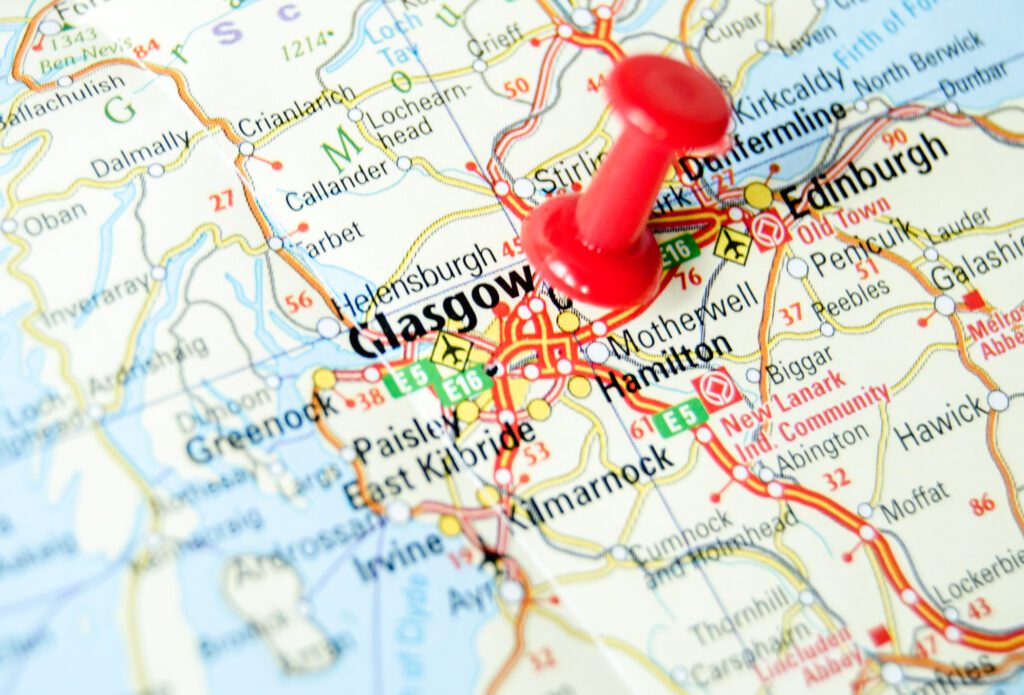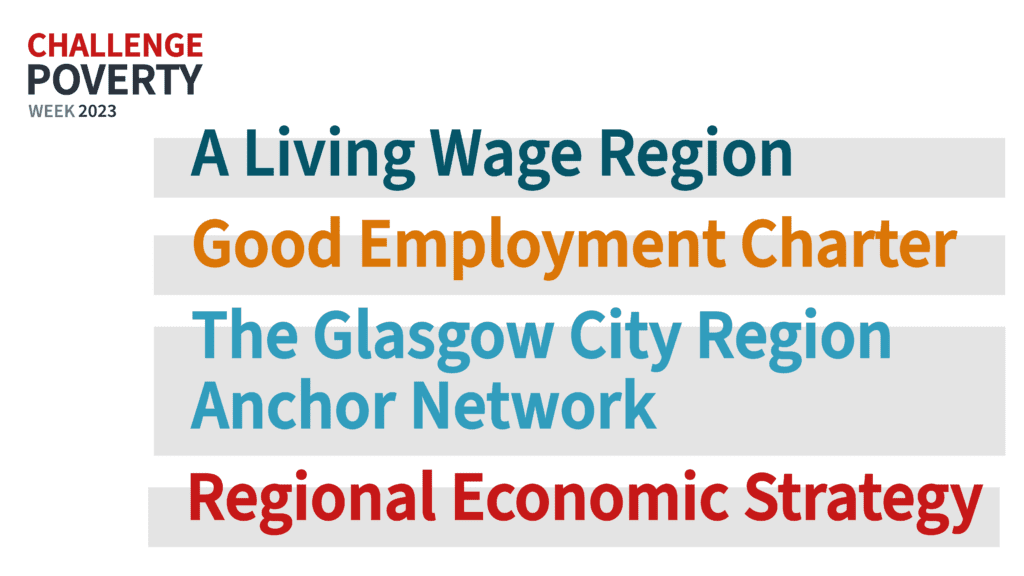Challenging Poverty: October 2023
As today marks the start of Challenge Poverty week, I wanted to use this month’s blog to talk about some of the work underway at Glasgow City Region to tackle this important issue.
Economic factors are the biggest determinants of poverty, health and inequality which are all interlinked. We want the health and wellbeing of our residents to be improved through our intentional efforts, particularly for those in the most deprived circumstances and communities.

Our Regional Economic Strategy sets a commitment to address three key challenges, one of which is to create a more inclusive economy. And this is being supported through work to look at skills, fair and healthy employment and through our commitment to community wealth building which seeks to ensure that communities reap the benefits of local assets and spending.
The cost-of-living crisis has clearly worsened poverty levels across the whole of the country, with increasing food and housing costs substantially reducing household disposable income. In fact, compared to last year, the bottom fifth of earners have seen their weekly expenditure increase by £50, while disposable income has reduced by £80, a reduction of 25%. This trend across all earners has resulted in forecast weekly expenditure matching or overtaking disposable incomes. This means that despite strong nominal pay growth, poor growth in real and disposable incomes has left many households vulnerable this winter.
This crisis has further exposed challenges within the Region. According to analysis by the Centre for Cities, Glasgow had the second highest rates of inflation across the UK in February 2023. Two key factors driving this are energy consumption caused by inefficient buildings and high fuel costs, exposing households dependent on car travel.
We continue to work with the government on initiatives that would address these particular challenges – a Regional housing retrofit scheme and hope to realise our ambitions for a Clyde Metro.
A Living Wage Region
Work has been underway to make Glasgow City Region a Living Wage Place.
The real Living Wage which is independently calculated, is paid voluntarily by employers, with an hourly rate set on an analysis of the wage that employees need to earn to afford what is considered a decent standard of living.

Evidence has shown that earning the real Living Wage can mean the difference between surviving and thriving. It has been successful in freeing thousands of people from in-work poverty which is a big issue across the Region. Recent data has shown the number of employees in low pay almost doubling between 2018-2021. This is vital as we have over 270,000 residents working in traditionally low paid sectors such as hospitality and human health.
I am pleased to say that all eight of our partner councils are now either accredited Living Wage employers or are on the path to doing so. This means all directly employed staff will never be paid less than the rate of the real Living Wage.
This is a good start and we recognise that, as organisations with large employee numbers, massive spending power, and as owners of land and property, we are in a strong position to influence change.
Working closely with Living Wage Scotland, we are setting our sights on increasing the number of local Living Wage employers and employees covered by a Living Wage commitment, and the number of people receiving a pay rise as a result.
Anchor Network
We have also established a Glasgow City Region Anchor Network. The Network, which met for the first time earlier this year, is made up of senior representatives from a range of public, private and third sector organisations of varying scale, all of which are anchored within the Region.
Recognising longstanding challenges of poverty, and wealth and income inequality, the Network provides leadership and momentum for building community wealth in the local economy. Collectively member organisations have an influential role in the Region’s economy, with a significant employee base, procurement and investment spend. Together they can impact the local pay landscape and support the creation of a more inclusive economy.
The Network will meet again next week, focusing on fair and healthy work. Scottish Government colleagues will speak about national priorities including what is anticipated within the upcoming Community Wealth Building Bill.
Good Employment Charter
We are also looking to develop a Glasgow City Region Good Employment Charter, learning from areas elsewhere in the UK that have introduced charters, including North Lanarkshire and Greater Manchester.
The Charter will support local employers to create workplaces that embrace the characteristics of good employment ensuring fair pay, equality and inclusion, and opportunity for progression to all. Proposals for a Regional Charter, and the various strands of activity involved such as engaging with businesses, administration and marketing are being scoped out.
As a final point, the Scottish Government’s commitment in the Programme for Government to support our ambition to become a metropolitan region and be granted further local decision-making powers is welcomed.
Recent announcements on the Clyde Mission and the £80 million Regional Investment Zone, in hand with work being taken forward through our Regional Economic Strategy are clear evidence of the benefits and opportunities from Regional working. Our programmes are being shaped to ensure they are inclusive and bring people furthest from the labour market into opportunities that offer fair and healthy longer-term opportunities.
